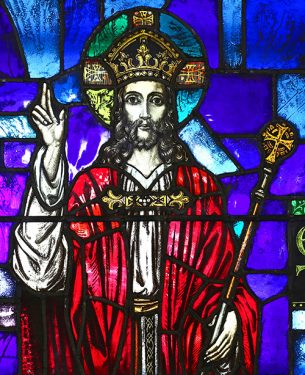Throughout his book, “Learning to Pray” (New York: HarperOne, 2021, pp. 386, $27.99), Father James Martin stresses the important role that sacred scripture can play as we approach God in prayer. This should not come as a surprise to Catholics since we believe that scripture is the inspired word of God.
To read sacred scripture is to have a conversation with God. However, I confess that I have been neglecting scripture in my prayer life. One resolution that has emerged from reading Jim’s book is that I plan to correct that mistake very quickly.

In one section of Learning to Pray, Jim provides a succinct statement about the meaning of parables, a mode of speech that Jesus used frequently. He prefaces his remarks by noting what most preachers know, namely that stories can convey meaning in a way that rigid definitions may not.
I know that at a Sunday Eucharist when I tell a story either from my own experience or from a novel I have read or a film that I have seen, I can almost feel the attention and interest in the congregation. People love stories. I think it was Holocaust survivor, Elie Wiesel, who said that God created us because God loves stories. Father Martin writes the following:
“Where a strictly worded definition can be shallow and closes down thought, a story opens hearers’ minds and is endlessly deep. Stories carry meaning without having to convert it into rigid statements. Parables also go against the normal expectations of the audience, as when a Samaritan, someone who hails from a hated ethnic group (at least from the standpoint of Jesus’ crowd) and so is seen as the ‘other,’ is ultimately revealed as the good guy who cares for the stranger.
In a sense, Jesus of Nazareth was a parable told by God.”(p.66)
I love the idea that Jesus is a parable told by God. The meaning and mystery of who Jesus was before his resurrection can never be exhausted. Nor can the meaning and mystery of who Jesus is after his resurrection ever be exhausted. Jesus is, as he said to his apostles, the Truth. We can enter more and more deeply into that truth and be enlightened, encouraged, and inspired. There is no limit to the truth that Jesus is. Jesus is the Son of the Father in a unique way, unlike every other sonship.
Every doctrine Jesus taught, every miracle Jesus performed was a living parable revealing the meaning and mystery of his Father. Jesus’ entire life was to be God’s parable. Whatever we say or write about Jesus, there is always more and better and deeper to say.
The philosopher who is generally identified as “the Father of Existentialism,” Soren Kierkegaard( (1813 – 1855) characterized Jesus as absurd. He did not mean that there was no meaning to Jesus but rather that there was such a depth of meaning to Jesus that it was impossible to fit that meaning easily and clearly into our finite human minds.
Whether we talk about Jesus’ teachings or Jesus as the Son of God, we can speak in superlatives but no superlative and no set of superlative will ever be sufficient to describe the God-man who is the Father’s Son. More can always be added but no matter how many ways we try to capture Truth and Love Incarnate, our efforts always will come up short.
Reflecting on what Father Martin has written about prayer and God, I am wondering if I have inadvertently lost some of the awe and wonder that should accompany belief in Christ and his good news. Without intending it, perhaps I have allowed my prayers to become routine. Even worse, perhaps I have become so accustomed to reciting my prayers that I have lost a sense of the “newness” of Jesus’ good news and have lost a sense of how earth-shattering Jesus’ news is.
All of reality has changed because of Jesus’ good news. I want to bring an awe and a wonder at God’s goodness and love for me and for others to my prayers.
I think that reading Father Martin’s book may influence me more than I thought it might before I started treading it. I plan to call my spiritual director after I finish writing this column and tell him that I wish to discuss Father Martin’s book with him. I don’t think that I will have any problem trying to find sections of the book to discuss. Rather I think discussing the book with my director will take more than one meeting. I have given Jim’s book to a few friends and I am eager to hear what their reaction to the book will be.
Father Lauder is a philosophy professor at St. John’s University, Jamaica. He presents two 15-minute talks from his lecture series on the Catholic Novel, 10:30 a.m. Monday through Friday on NET-TV.
